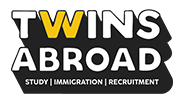Provincial Nominee Programme
PNP opens doors to permanent residency for skilled professionals, driving economic growth in Canada’s provinces and territories.
The Provincial Nominee Program (PNP) serves as an essential route for skilled workers, entrepreneurs, and graduates to achieve Canadian permanent residency by obtaining a nomination from a designated province or territory. This allows regions to tackle their specific workforce and economic requirements by choosing individuals who can aid in local advancement and progress. PNP allows the provinces and territories of Canada to nominate eligible immigrants who want to settle in a specific region. Canada has ten provinces and three territories. Apart from Quebec and Nunavut, all provinces and territories participate in the PNP. Instead, Quebec has its own criteria for economic immigration.
How It Works?
The goal of the Provincial Nominee Programme (PNP) is to draw in qualified workers who can boost the economy of a particular Canadian province or territory. Each Canadian province and territory has its own immigration streams or programmes that focus on specific groups based on critical skills, job sectors, or other criteria.To apply for the PNP, candidates must meet the eligibility requirements outlined by their province’s immigration program. Once an applicant’s profile meets all of the requirements for their chosen provincial stream, they get a nomination from that province, which will then help them apply for permanent residency in Canada.
The Growing Significance of the PNP
The Provincial Nominee Program (PNP) has emerged as a prominent route for obtaining Canadian permanent residency, admitting more than 100,000 immigrants each year. Almost every province and territory in Canada implements the PNP system to attract skilled workers capable of enhancing their economies. Each province establishes its own selection criteria and uses an Expression of Interest (EOI) system, akin to Express Entry, to conduct periodic draws to invite qualified candidates.PNPs operate through two primary pathways: enhanced and base nominations. Better PNP streams work with Express Entry, giving candidates an extra 600 Comprehensive Ranking System (CRS) points when nominated by a province. This makes it much more likely that they will get an Invitation to Apply (ITA) for permanent residency. In contrast, Base PNP streams enable applicants to submit their applications straight to a province, eliminating the need for an Express Entry profile.
The implementation of PNPs has contributed to a more balanced distribution of immigration throughout Canada. Prior to the introduction of PNPs, the majority of immigrants chose to establish themselves in Ontario, Quebec, and British Columbia. Currently, regions like Alberta, Saskatchewan, Manitoba, and the Atlantic provinces have effectively drawn in skilled professionals, fostering economic development nationwide.
Contact Us Now
+91 8593000922
Apply as a Provincial Nominee Via the Non-Express Entry Process
Skilled foreign workers who do not qualify for the Express Entry programme can still get permanent residency through the non-Express Entry process. Different provinces have different rules about who can participate in these programs. Applications that aren’t through Express Entry take longer to process than those that are.

Apply as a Provincial Nominee Via Express Entry
Express Entry applications as a provincial nominee are a favorable chance to get permanent residency and work legally in Canada. A province or territory must first select a nominee from a pool of candidates who have already established an Express Entry profile. If the province or territory nominates you, it signifies their satisfaction with your education, work experience, and skills, which align with the demands of the job market and contribute to their sustainable economic objectives.
The province or territory must accept a nomination within 30 days of receiving it. Upon nomination by the province or territory, the applicant will receive 600 additional Comprehensive Ranking System (CRS) points. This will assist the applicant in obtaining an invitation to apply (ITA) in the subsequent Express Entry draw. Immigration, Refugees, and Citizenship Canada (IRCC) is the entity through which the candidate may submit an application for permanent residence.
